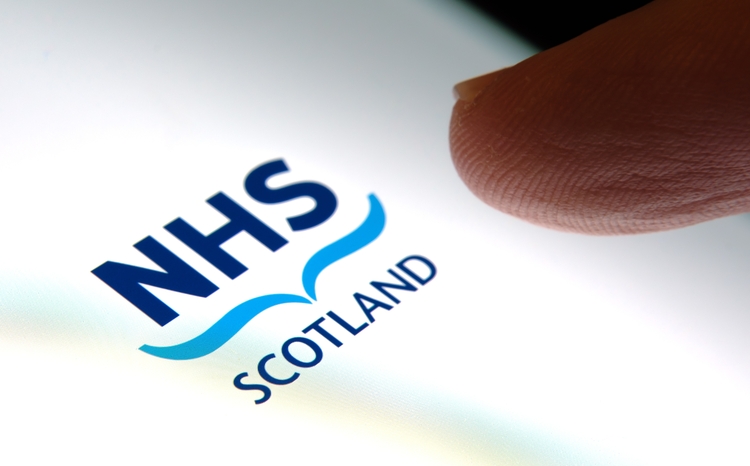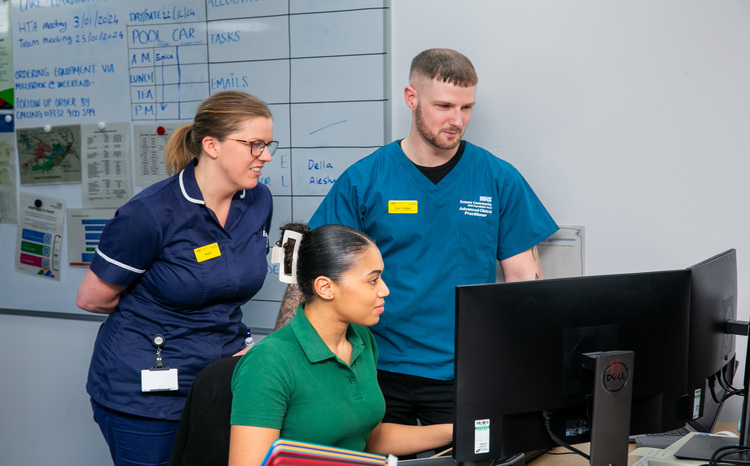Health wearables firm Fitbit holds talks with NHS

Fitbit, the US wearable fitness tracker firm, has held talks with the NHS it was revealed at the weekend.
The firm’s co-founder and chief executive James Park told the Sunday Times that talks had taken place with senior executives in the health service, but no firm plans had been agreed.
In July 2016 the Telegraph reported that Secretary of State was a keen Fitbit wearer, and uses a tracker from the firm to ensure he manages 10,000 steps daily.
The news comes almost two years after NHS England announced moves to promote wearables to monitor patients with long-term conditions.
In June 2015, Tim Kelsey, the former NHS England national director for patients and information, said that by 2018 members of the public will be able to add data from wearable devices to their electronic patient record. But there have been few details in the two years since the announcement.
The 2015 target came as part of a commitment to give patients real-time access to their full electronic health record by 2018.
Fitbit has a deal with US health insurer UnitedHealthcare, the organisation NHS England’s chief executive Simon Stevens was a senior executive at for 10 years, where members get cheaper premium based on how much exercise they take using data monitored from the wristband.
Park told the Sunday Times that talks with the NHS were along broadly similar lines.
UK health insurer Vitality offers members a scheme where customers who hand over their fitness data can get a heavily discounted Apple Watch, providing they exercise strenuously for two years, as tracked by the watch.





10 Comments
Some similar concerns expressed to me that the NHS Digital proposals are still not making adequate plans to exploit the opportunity provided by Internet of Things (IoT), Wearables and Assisted Living technologies at the earliest.
The current focus is being given to resolving internal data integration / flow issues which do need resolving (acknowledging that there are clinical and information governance concerns as well as care benefits needing to be addressed). Whilst these in the main deliver service quality and improved workflow for people already in the system, the support for delivery of a transformed and more sustainable service delivery model is limited.
Transformation of the service delivery model and improvement in future sustainability of any significance for health and social care is largely dependent on the digital patient engagement and capabilities delivered by technology innovation incorporated into these engagement solutions. The opportunity and benefits potential is significant, when the service delivery model evolves from one that is largely re-active and after the fact, to an alternative and more sustainable pro-active and well-being orientated model.
The benefits of a well-being and pro-active service delivery model can only be enhanced by any ability to integrate and exploit technology innovations and automation delivered by internet of things, wearables, assisted living and health and care / well-being monitoring innovations and solutions. The more capable these technologies become will enhance adoption and with this increase the range of proactive information and data to increase opportunities for cost saving interventions and / or preventions.
Consequently the long-term objective of any digital health and care engagement solution, should be about providing the means to help us to live well, and if we are unfortunate enough to have one or more long term chronic conditions or disability, to be empowered to manage our situation as much and as well as we can. It is never though just about us and individuals, we pretty much all care for or are cared by somebody else. So we should be able to gain access to others information too.
All of the above inevitably leads to an explosion of information becoming available, and of the most personal and sensitive kind! Consent, data ownership / management quickly become the most important considerations in any engagement solutions design that wants to be open to accommodating future technology innovations delivering on the pro-active health and well-being opportunity.
It is, however, widely acknowledged that local developments and deployments are not being guided by core common engagement and consent model or universal data flow / integration standards, of concern consequently, the progress to a better model of health and care continues to evolve with massive variations in capability delivered differently across regions.
Until the need for core common standards on data consent, governance and interoperability are fully addressed the opportunity to achieve the £20b of universal benefits from a transformed service delivery model by 2020 will very likely remain an elusive and much less assured target that it could otherwise be.
Thanks for your comment Clive. Actually I’m based in Scotland and it’s a bit of a different picture here. We already have integration of health and social care and the stakeholders in care and health realise they need to work with the third sector and charities. It is a target of the Scottish Government to help people remain at home or in a homely setting which is where we cone in.
hi Julia, I am aware that NHS Scotland has put out the “message” that in Scotland Health and Social Care has been integrated.
However, I do not think H&SC can be integrated efficiently or for the full benefit of the person unless health and social care DATA is integrated. Trust me I have nothing against NHS Scotland (my partner was born in Glasgow), but I take the messages coming out of NHS Scotland and NHS England with a pinch of salt.
On a personal note, I am convinced that far too many people in England are dying in hospitals when they should be either in a hospice or at home.
But probably best not to take my word for it, take a look @ and trust the data e.g. Indicator PPoD (Preferred Place of Death).
I love running and I take my hat off to all those @ park run, volunteers and workers. But this is NHS England boyz toyz. Thanks for sharing and being open Julia.
I’m currently working with 2 GPs to put a technology enabled care health clinic into a large sheltered housing complex to help our tenants manage their LTCs. Believe me there is very rigorous consent processes to get technology working from a non NHS site integrated with GP’s systems. It took 4 months out of a total pilot that was supposed to last 12 just to get Caldicott Approval. I’m all for data protection and understand the need but this must become more streamlined and happen faster. Fortunately the funder is being flexible on the timescales.
Good point Dan
Perhaps the NHS can also review the new micro-current wearables which systemically help repair tissue through electric regeneration pads. Reducing bed costs provides a much faster and higher ROI
Like many “leading” on technology and “innovation” in the NHS. The blind leading the blind.
The NHS needs to ensure it has sufficient focus on providing an open and interoperable approach so that no matter what service or device the individual chooses now or in the future we have the generic capability to consume this data.
We are talking about evolving consumer tech that is subject to rapid change, not only as the market and technical capabilities mature but also as fashion and popular trends shift.
Much of the phenotypic and remote monitoring data will be locked up across a range of services and devices in a market that the NHS has little or no control of, therefore, the NHS needs a suitable generic approach that reflects this.
Then there is the consideration of consent something the NHS has always struggled with even at a basic level.
As the NHS moves into this new realm and wants to process more and more personal data it will need to put in place more rigorous consent processes and technology to enable the user to share THEIR DATA in an informed and explicit manner.
The NHS does just a small part of the health journey. The issue is that the NHS has control of virtually all health data, this puts it in a very powerful position. My personal and honest opinion is that because of the troubles IT’s in, it’s focus should be clinical, not data.
Comments are closed.